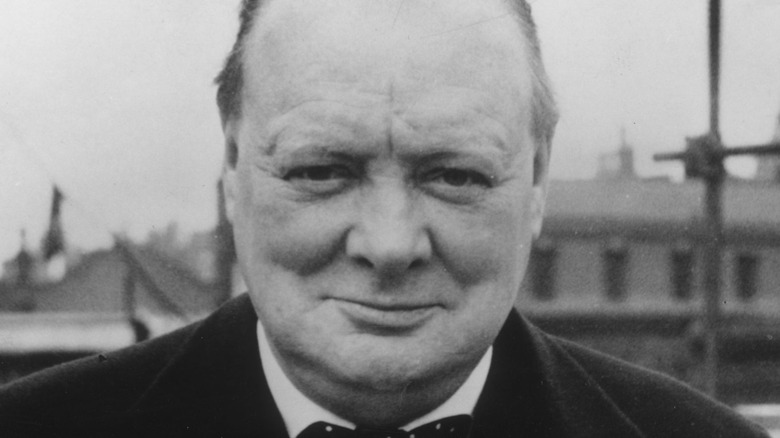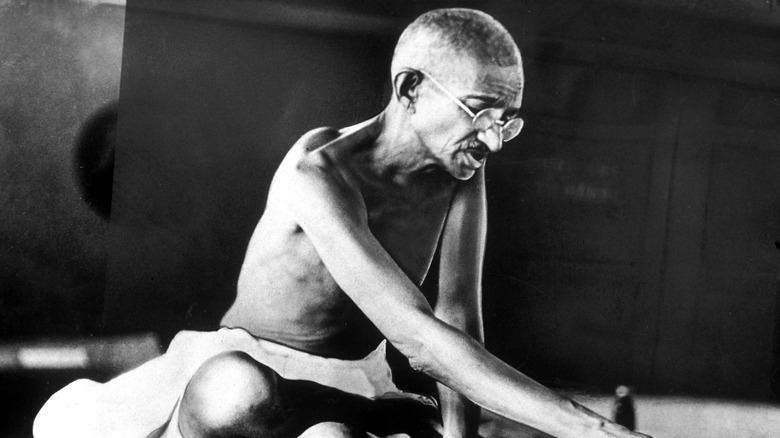How Winston Churchill Really Felt About Gandhi
Winston Churchill hated Mahatma Gandhi. At least that's the way Ramachandra Guha described the late British prime minister's feelings about India's revered activist for Indian independence in a 2019 article for The Atlantic.
But it's no wonder. The two leaders' ideologies could not have been more different. From Churchill's point of view, Gandhi was a thorn in the side of the British Empire, whose power was distinctly tied to its ability to colonize other nations, subjugating those nations' people to British rule.
But Gandhi wasn't feeling all that. As an Indian-born, London educated attorney, Gandhi spent decades leading peaceful civil disobedience campaigns to protest what he perceived as the ills of colonial rule, both in South Africa where he lived and worked as an attorney for 20 years, and then back in India where he returned in 1914, according to History.
Churchill, on the other hand, was more than happy to have his country be the figurative king of the mountain, as he viewed the white race as superior to the races of those living in the colonized nations. "I do not admit, for instance, that a great wrong has been done to the Red Indians of America or the Black people of Australia. I do not admit that a wrong has been done to these people by the fact that a stronger race, a higher-grade race, a more worldly wise race to put it that way, has come in and taken their place," he once said, according to the BBC.
Winston Churchill did not trust Gandhi and considered him an enemy
According to the BBC and The Atlantic, Winston Churchill was not shy about his disdain for Mahatma Gandhi. "It is alarming and nauseating to see Mr. Gandhi, a seditious Middle Temple lawyer, now posing as a fakir ... striding half-naked up the steps of the Vice-regal Palace," Churchill said of the pacifistic activist, per the BBC.
Churchill was particularly bothered by and suspicious of Gandhi's use of fasting as a form of protest and worked to uncover Gandhi as a cheat. The Atlantic reported that Churchill sent the viceroy, Lord Linlithgow, at least two different letters expressing his doubts and trying to prove them.
In one, he said, "I have heard that Gandhi usually has glucose in his water when doing his various fasting antics. Would it be possible to verify this." Churchill was never able to verify Gandhi was sneaking nourishment, but once said if he is really fasting, let him starve himself to death.
Specifically, he said to the British cabinet, per the BBC, "Gandhi should not be released on the account of a mere threat of fasting. We should be rid of a bad man and an enemy of the Empire if he died."
Churchill couldn't even let it go after Gandhi was assassinated in 1948, writing in 1951 (per The Atlantic), "It was certain, however, at an early stage that he was being fed with glucose whenever he drank water, and this ... enabled this frail being to maintain his prolonged abstention from any visible form of food."

